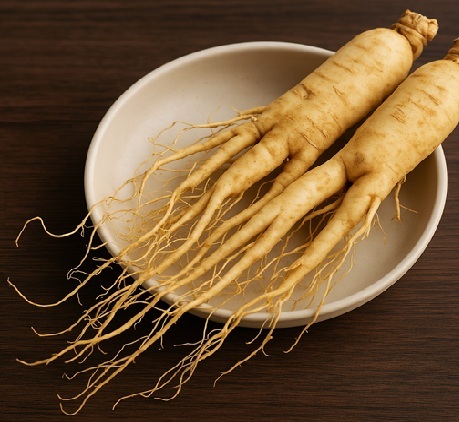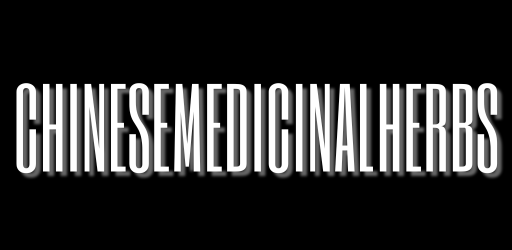Ginseng Chinese Herb

Ginseng (Ren Shen): A Powerful Root for Vital Energy, Focus, and Resilience
Introduction
Ginseng, known as Ren Shen (人参) in Traditional Chinese Medicine (TCM), is a revered herbal root celebrated for its energizing properties, ability to replenish qi, and support for both mental clarity and physical endurance. Sweet, slightly bitter, and warm in nature, ginseng is a cornerstone in many classical and modern herbal formulas aimed at restoring balance, strengthening the body’s core vitality, and enhancing resistance to stress. Often used after illness or during times of fatigue, ginseng is one of the most iconic herbs in the TCM tradition.
What Is Ginseng?
Ginseng refers to the root of Panax ginseng, a slow-growing perennial plant native to East Asia. In TCM, Ren Shen is considered sweet and slightly bitter in taste, and warm in nature. It enters the Spleen, Lung, and Heart meridians. Ginseng is traditionally used to tonify original qi (yuan qi), calm the Shen (spirit), promote cognitive function, and increase resistance to both physical and emotional stress. It is widely recognized as a powerful adaptogen in both Eastern and Western herbal medicine.
Health Benefits of Ginseng
- Powerfully Tonifies Qi
- Used to address fatigue, shortness of breath, spontaneous sweating, and cold limbs due to qi deficiency.
- Strengthens Spleen and Lung function to enhance energy and stamina.
- Boosts Immune Function and Recovery
- Enhances immunity and speeds recovery after illness or surgery.
- Strengthens the body’s core defenses.
- Enhances Mental Focus and Cognitive Clarity
- Sharpens memory, concentration, and mental clarity.
- Useful for students, professionals, and elders experiencing mental fatigue.
- Supports Cardiovascular and Metabolic Health
- Improves circulation and nourishes the Heart.
- Helps balance blood sugar levels and supports metabolism.
- Balances Stress and Nourishes Shen (Spirit)
- Calms the mind and relieves stress, anxiety, and adrenal fatigue.
- Promotes emotional balance and a restful state.
How to Use Ginseng
- In Soups and Herbal Decoctions
- Simmer 3–9 grams of sliced ginseng root with herbs like astragalus or goji berries for 30–45 minutes.
- Often included in tonic formulas such as Bu Zhong Yi Qi Tang and Shen Qi Wan.
- In Powder or Capsule Form
- Widely available in concentrated extract or capsule form.
- Choose high-quality, standardized products for consistent potency.
- As a Tea or Tonic Drink
- Brew ginseng with honey and ginger for a warming, revitalizing tea.
- Ideal during recovery or cold weather for an energy boost.
Where to Buy Ginseng
You can find Ren Shen at the following places:
- Chinese herbal medicine shops
- Health food stores and herbal apothecaries
- Reputable online retailers such as Amazon, iHerb, or specialty TCM websites
Look for:
- Wild or cultivated roots (e.g., Korean red ginseng, Chinese white ginseng)
- Verified sourcing and lab-tested for purity
- Clear labeling indicating whether it’s white (dried) or red (steamed and dried) ginseng
Are There Any Side Effects?
Ginseng is generally considered safe when used appropriately but may not be suitable for individuals with internal heat, insomnia, or high blood pressure. Overuse can lead to irritability, restlessness, or insomnia, especially when combined with caffeine or stimulants. Pregnant or breastfeeding individuals, or those with chronic health conditions, should consult a licensed practitioner before use.
Conclusion
Ginseng, or Ren Shen, is a legendary herbal root that continues to earn its place as one of the most potent and time-honored tonics in Traditional Chinese Medicine. Its ability to replenish qi, enhance cognition, and strengthen the body’s core resilience makes it a valuable tool for anyone seeking balanced energy, mental clarity, and long-term wellness.
FAQs
1. Can I take ginseng every day?
Yes, ginseng can be taken daily in moderate doses for short to moderate periods. Long-term use should be guided by a qualified herbalist.
2. What does ginseng taste like?
It has a slightly bitter, earthy, and subtly sweet flavor that becomes mellow and aromatic when simmered or combined with honey.
3. Is ginseng safe for children?
Generally not recommended for children unless specifically prescribed by a pediatric herbalist for conditions like severe fatigue or post-illness recovery.

